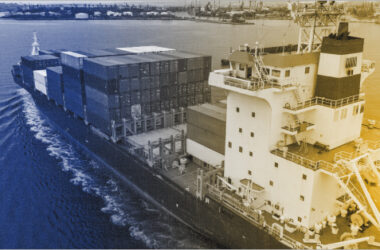In the ever dynamic business environment in India, money or cash still remains the king- particularly among small traders, retail stores, fuel stations, jewellery shops, health care facilities and transport companies. Although digital transactions are increasing at a high rate, thousands of businesses nationwide continue to depend on physical money or cash for their daily activities. However, there are risks associated with this dependency, namely theft, burglary, employee theft, or loss in transit.
When you think about it, a moment of carelessness or a lapse in security can cost you lakhs. This is why Money Insurance Policy is an important financial security blanket. It protects the cash your business transacts in- whether in a cash counter, locked in a safe or on its way to the bank.
This blog will go into the details of what a Money Insurance Policy is, how it works in the Indian context,and why it should be a part of your risk management strategy.
What is a Money Insurance Policy?
Money Insurance Policy is a form of general insurance coverage, which is aimed at protecting businesses against financial loss as a result of theft, loss or destruction of money or cash in different forms. It does not only involve cash but also cheques, drafts, postal orders, pay orders, and treasury notes.
Such losses are compensated in case they happen when the money is:
- Being transported by authorised staff
- Kept in a business establishment inside or after working hours
- Locked in a safe or strongroom
- Handled under particular circumstances necessitated by business operations
Basically, this insurance policy comes in as a financial backup solution when your company is affected by a monetary loss caused by crime, unexpected incidents, or operational hazards.
Why is Money Insurance Important in India?
Although the Indian digital economy is expanding at a rapid pace, India is still a cash-intensive market, especially in Tier 2 and Tier 3 cities. As of early 2024, over ₹33 lakh crore worth of currency is in circulation, as peraccording to an RBI statistic. Whether in small retail counters or big distribution chains, cash or money is the most preferred means of payment in most of the sectors.
Here are a few typical Indian situations in which cash risks are still a reality:
- Daily bank deposits by shopkeepers or delivery executives.
- Collections from multiple outlets transported by a cashier in an autorickshaw or private van.
- Event ticketing cash handled by temporary employees.
- Cash donations collected at temples, trusts, or educational institutions.
- Night-time thefts from strongrooms or safes in petrol stations or clinics.
Without proper protection, these vulnerabilities can translate into serious financial setbacks. Money Insurance provides the necessary legal and financial framework to recover from such losses.
Scope of Coverage
Let’s break down where money insurance policy can help in a typical business setup:
- Money in Transit
Insures loss, theft or disappearance of money or cash in transit between business premises, bank or client facilities. The loss of money is covered – as it moves in a bag, briefcase, or a van.
- Money in Premises (Business Hours)
If the money or cash is stolen or lost while being handled during working hours—for example, from a cash register, counter drawer or office table—the same is covered
- Money in Premises (After Business Hours)
Compensates for the loss of money kept in a locked safe, vault or strongroom , beyond working hours. Armed break-ins or burglaries are included in this category.
- Loss from Hold-Up or Armed Robbery
When an employee is threatened with violence during a cash handover or while depositing the cash, the insurance policy covers this type of situation.
- Safe Damage Coverage
In case robbers try to break into the place and damage the safe, even though they do not steal money, the insurer can cover the repair or replacement costs.
Who Should Buy Money Insurance?
Money Insurance is not just for large corporations. It’s highly relevant to:
- Retailers and Kirana Stores: Daily cash sales and home delivery collections.
- Fuel Stations: High cash turnover, multiple attendants handling cash.
- Jewellers: High-value transactions in both cash and cheque.
- Healthcare Institutions: Patient deposits and consultation fees.
- Event Management Companies: On-ground ticket counters and cash booths.
- Educational Institutions: Cash fee collection during admission season.
- Cash Logistics Firms: Handling and transporting third-party money.
- NGOs/Trusts: Cash donations and contributions.
- Restaurants and Eateries: Large weekend footfalls and COD deliveries.
If your business involves handling physical money in any form—collection, storage, or transfer—a Money Insurance Policy is a smart and necessary investment.
Key Inclusions in a Money Insurance Policy
A well-structured policy generally includes:
- Transit cover: Protection from loss or theft while money is transported by you or an authorised employee.
- On-premises cover (business hours): If money is stolen during working hours from the cash counter or desk.
- On-premises cover (after hours): If cash is stolen after hours from locked safes, vaults, or cabinets.
- Safe and property damage: Repair or replacement of safes broken during burglary attempts.
- Robbery/hold-up protection: Financial cover if money is forcibly taken under threat or violence.
Some insurers even extend coverage to:
- Collections from vending machines
- Cash held in cash vans or temporary booths
- Emergency cash stored at events or exhibitions
Major Exclusions
A policy, however, doesn’t mean blanket coverage. Key exclusions include:
- Loss of money due to employee fraud or dishonesty, unless specifically covered via an add-on.
- Negligence, such as leaving cash unattended or in unlocked safes.
- Shortages from accounting errors or unverified losses.
- Damage or loss of money during war, terrorism, strikes, or civil unrest (unless specifically opted for).
- Loss due to natural disasters like flood or fire, if not part of the base policy.
- Loss in unreported transit or if carried by unauthorised personnel.
Always read the policy wordings carefully and ask your insurer about grey areas.
Features and Benefits of Money Insurance
A Money Insurance Policy can be tailored to cater to your specific cash-handling procedures. This is why this policy can be advantageous:
- Comprehensive Coverage
Covers various risks such as robbery, theft, accidental loss and even safe damage.
- Customisable Sum Insured
You may choose specific transit amounts, daily limits and premises coverages, depending on your cash flow.
- Business Continuity
Avoids the shock of losing money or cash, which may, in turn, hinder smooth business operations.
- Low Premiums
Money Insurance is quite inexpensive and the premiums are determined by cash limits, employee risk and the operational geography.
- Legal and Regulatory Compliance
In industries such as finance or transport, such an insurance policy lends credence and demonstrates sound financial management.
Add-On Covers and Optional Benefits
Some valuable optional extensions include:
- Employee Infidelity Cover: Protects against dishonest employees stealing money.
- Strike, Riot, and Civil Commotion Cover: Important for politically sensitive or high-risk zones.
- Night Safe Cover: Increased protection for high cash holdings overnight.
- ATM Coverage: For banks or businesses managing ATM cash loading.
- Seasonal Extension: Temporarily increased cover during festivals or sales peaks.
Add-ons typically cost more but can be a lifesaver in high-risk environments.
How to Choose the Right Money Insurance Policy
Here’s a step-by-step approach:
- Risk Assessment: Calculate your daily and monthly cash exposure—both in transit and at premises.
- Compare Policies: Look beyond premiums. Check claim limits, exclusions, and service quality.
- Evaluate Insurer Reputation: Consider insurers with a high claim settlement ratio and responsive support.
- Check Flexibility: Good insurers allow changes to cash limits, transit frequency, and employee list.
- Understand Claims Documentation: Know upfront what documents you’ll need during a claim.
Claim Process under Money Insurance
In case of a loss, here’s what to do:
- Inform your insurer immediately, usually within 24 hours.
- Lodge an FIR for robbery, theft, or hold-up incidents.
- Submit documents such as:
- Claim form
- Police report
- CCTV footage (if available)
- Bank deposit receipts or withdrawal slips
- Authorisation proof of the employee transporting cash
- Allow surveyor inspection, if required by the insurer.
- Follow up for claim settlement, which typically takes 15–30 working days.
Being prompt and organised can greatly speed up your reimbursement process.
Money Insurance vs Other Business Insurance Types
Understanding the difference among these policies is critical for proper financial planning-
| Insurance Type | What it Covers | Best For |
| Money Insurance | Cash, cheques, drafts in transit or storage | All cash-based businesses |
| Burglary Insurance | Theft or damage of property/assets | Warehouses, retail stores, showrooms |
| Fidelity Guarantee | Employee dishonesty or embezzlement | Companies with financial staff |
| Fire Insurance | Fire or explosion damage to assets | Offices, factories, hotels |
Money Insurance may be used either as an independent policy or as a component of a comprehensive business insurance plan.
Final Thoughts:
At a time when risks are increasing every passing day and financial transactions are becoming more complicated, a Money Insurance Policy can be a real safety net for cash-handling businesses in India. This insurance policy is not only about safeguarding cash, but it is about safeguarding livelihoods, facilitating business continuity and mitigating risk exposure.
It does not matter whether you are handling 10,000 or 10 lakh rupees a day; safety of that cash is simply not negotiable. When you have Money Insurance, you do not need to live in fear of what may go wrong.
Be proactive. Be protected. Protect your money now, as each rupee counts.








